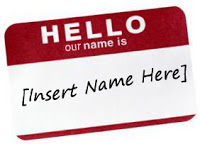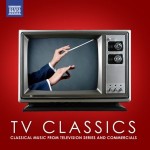Musical Group Names: The Final Neutral Frontier?

Are names fair game in the music business?
(Cit. PasGraphe.blogspot.com)
Each time the topic of musical stereotypes sweeps across my site, it usually does in so in a manner that involves dissecting one piece of the stereotyping puzzle. Clothing, behavior, lyrics, chord progressions, audience reception…these pieces do play notable parts in either deconstructing or fostering a pseudo-belief about different styles of music but is there any aspect, any element that onlookers might com across that does not evoke a fanning of the fire of judgement, regardless of what genre is under the spotlight?
I had mused over this question recently when reading up about a separate story on the “20 Worst Dressed” at the Metropolitan Museum of Art’s Costume Institute Gala. The source where I found such a headline was surprisingly from music and pop-culture players, VH1. At first I wondered why, despite being a hub of pop culture, VH1 would be reporting on the attire seen at a Met Gala. It’s not as if we see a best and worst dressed list for them every year or for their sibling, the Met Opera. However, realizing the theme for the Gala and the accompanying exhibition was/is “Punk: Chaos to Couture” and seeing that many A-list celebrities outside of the Met’s circle had attended, VH1’s notice of the event made much more sense. This event crosses many pop culture and arts borders of its own. However, I digress.
***********************
After seeing medium-crossing names like Anne Hathaway and Beyonce and Anna Wintour mixed up together for this event, it got me thinking about names and mediums when it comes to musicians and groups. Sure, a name, next only perhaps to a logo, is one of the first things a person might reflexively pull from their memory banks when thinking or talking about a group and typically one might assume the picking of name is heavily weighed against the type of music being made or the type of musicians playing said music. Nevertheless, what, aside from those musicians who firmly position themselves in a genre and match their group name with it, stops any group or individual in any style, from deciding on a name that in no way reflects their sound? If the answer to that question is a resounding “Absolutely nothing,” then would it be unreasonable to think of group names as that one element of a musician’s “overall package” that has no limitations when it comes to genre-fueled judgement?
Okay, so maybe it would be naive to think a name like “The Perishing Undead” would not call up possible thoughts of a group in an aggressive vein of rock or metal and that the cause of such is most likely due at least in part, to genre-based stereotyping and conditioned cultural influence for the less genre exposed. Still, while such a name might come off as a misleading marketing ploy if it were the monogram of a classical piano duo, would anyone dare tell a group they are not “allowed” to have that name or that it did not belong with them, simply based on repertoire or instrument choice?
Whether a name is brief and rather linguistically innocuous, (e.g. The Eroica Trio) or is complex and imaginatively baiting as the hypothetical example above, if background and context is given to a group’s name, then the focus becomes that of the story, not of whatever associations -logical or not- that a person might form with a name and subsequently the group. This could be applied to any active musician and even within the contemporary and commercial pop-rock side, there are times when a story can make all the difference. One name that comes to mind? Nickelback.
The very plain, everyday nature of where the Canadian group came up with their name, (giving back five cents in change to many-a-customer at Starbucks,) immediately dissolves any potential musical connection and makes the name stand on its own.
Of course, I realize we have not incorporated much discussion of marketing up to now and that names can often come about without a real life story and are more about generating or abstaining from excess attention. That being said, here is another question:
Is the reality of the situation that musical group names are only limited by the pre-existing conditions of marketing, which applies to and affects all musicians across the board, separate from their varying sounds and lyrics?
Even if it might be impossible to completely remove all imagery and reflex association from names with certain words, my point in raising these questions and ideas is to say that I see a good vantage point from which music listeners can approach virtually any artist without bias. (or least without genre specific bias.) If marketing and branding are the only things that influence thoughts on a name, and marketing applies to all in the music business, and the question is not about whether a group “should” or “should not” have a name based on the type of music they play, then maybe, just maybe, that could be the key to disassembling more style barriers and gaining more of an open-minded listener.




Leave a Reply